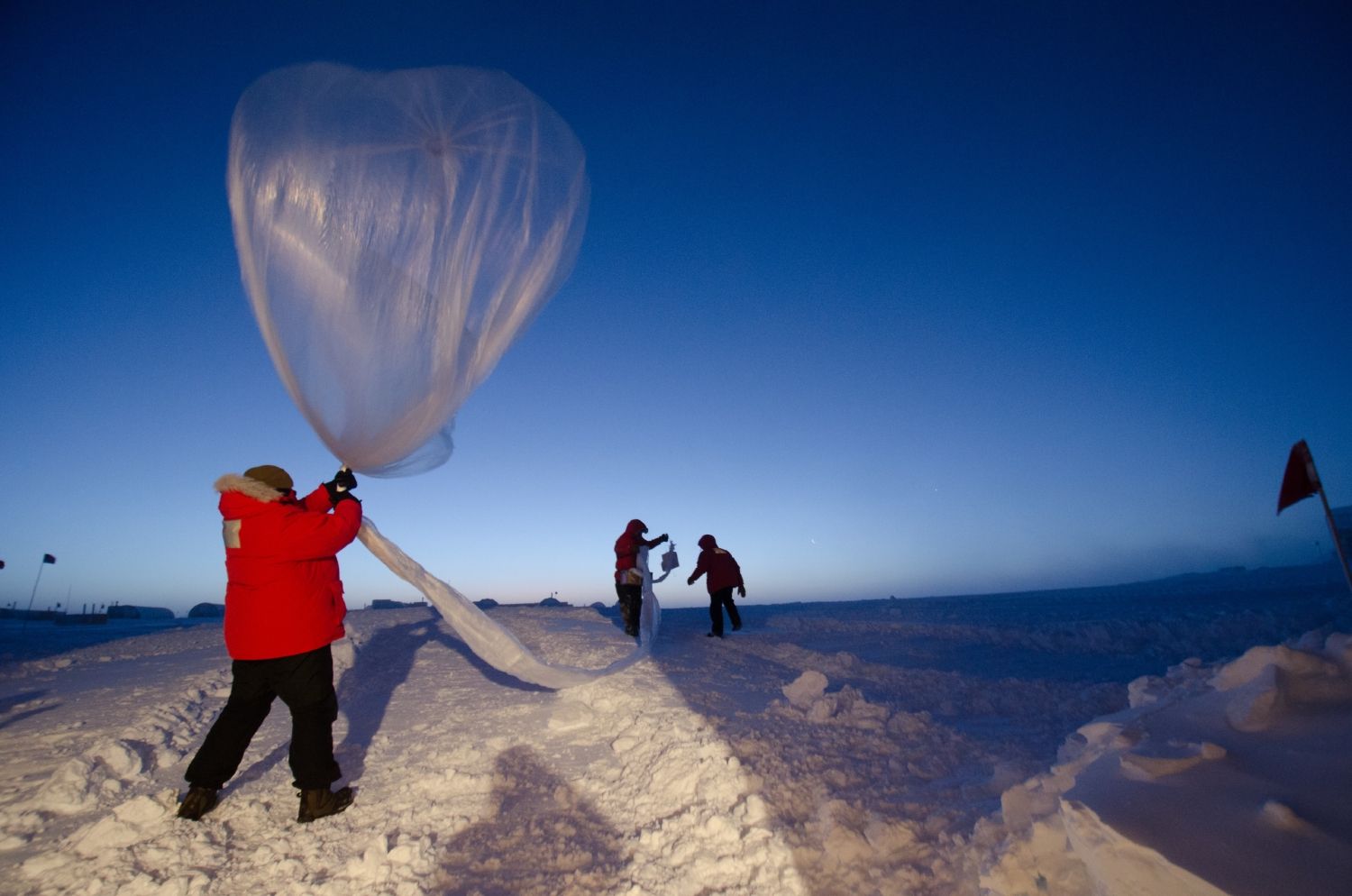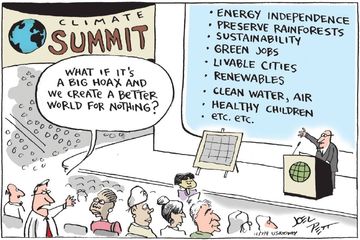The recent extreme weather incidents making headlines seem like science fiction. Despite their wealth some of the richest countries in the world have no control over widespread fires — even the Arctic is burning.
The deadly floods in Belgium and Germany in July 2021 indiscriminately washed out cars and buildings, with more than 1,000 people still missing. In China, it’s not any different; flooding caused several deaths, and The Pacific Northwest of the U.S., which is known for its cool climate, hit a record high of over 37℃ (100℉).
All these changes are a consequence of human activity as per the latest findings of Working Group I IPCC’s 6th Assessment Report released on Aug 6, 2021.
IPCC (Intergovernmental Panel on Climate Change) is the most authoritative climate science body globally. This landmark study is an eight-year research journey consisting of more than 200 scientists across 65 countries, encapsulating research from over 14,000 papers into an exhaustive report.
Today we are already experiencing the effects of man-made climate change and the future consequences look far worse than previously thought. Huge swathes of land suitable for living and farming are predicted to burn or drown and a large fraction of currently living species will become extinct. Even if we stopped the production and consumption that caused it right now, we will still be dealing with these catastrophic effects for decades.
What is the IPCC?
The Intergovernmental Panel on Climate Change (IPCC) is a body of the United Nations charged with providing relevant scientific information pertinent to understanding human-induced climate change, the natural, economic, and political implications and risks.
Formed in 1988, It consists of the world’s experts in climate science who prepare comprehensive reports on the current state of the knowledge on climate change every few years.
The IPCC has steered extensive science review efforts in global history. Rather than carrying out its own research, the IPCC evaluates peer-reviewed scientific literature from thousands of scientists across the world and selects the ones with solid facts.
The most recent publications consist of a series of special reports over the recent years on living on the planet with 1.5 degrees Celsius and the effects of climate change on oceans, land, and icy places.
IPCC’s workload is shared among three Working Groups, a Task Force and a Task Group. Each Working Group and Task Force’s activities are administered and coordinated by a Technical Support Unit (TSU).
What Does Each Workgroup Do?
Working Group I
Working Group I (WG I) deals with the physical science basis of climate change. Simply put, it assesses how the climate has changed, the possible climate futures we are likely to face, and the necessary emission reductions to ensure global warming is kept in check.
Working Group II
The IPCC Working Group II assesses the impacts of climate change, spanning from a worldwide to a regional view of biodiversity and ecosystems, inclusive of humans and their diverse societal and cultural settlements.
It further assesses the vulnerabilities, capacities, and limitations of these natural and human systems' adaptability to climate change, consequently reducing climate-associated risks. Moreover, it explores options for creating a sustainable future for humanity in an equitable and integrated approach while mitigating and facilitating adaptation efforts at all scales.
Working Group III
IPCC Working Group III is tasked with the responsibility of assessing the mitigation options for climate change. These encompass the responses and solutions, such as enhancing carbon sinks to avert the dangerous effects of greenhouse gases responsible for global warming.
Who are These Reports Made For?
IPCC assessments act as a playbook for politicians and policymakers' guide for future decisions about the current climate crisis.
They provide governments with scientific information, valuable in the development of climate policies and pivotal in international negotiations tackling climate change.
The process entails a series of reports that are drafted and reviewed in several stages, therefore guaranteeing transparency and objectivity. All the contributions of the three working groups are integrated into a synthesized report after a rigorous process.
For Instance Working Group I’s contribution to IPCC’s 6th Assessment Report lays out a detailed summary for policymakers (39 pages) addressing up-to-date physical changes of the climate system in climate science from multiple lines of evidence.
It’s vital to remember that IPCC assessments are only meant to be policy-descriptive rather than policy-prospective. They only give a portrait of the current happenings and the potential effects based on greenhouse emissions levels.
Key Facts from IPCC’s 6th Assessment Report
Unprecedented Effects of Climate Change
The IPCC Working Group I findings reiterate the message from past assessments that human activities unequivocally cause global warming, thus causing swift changes in the climate system.
We are not only smashing the record for warming, but the current world we live in has no recent parallel.
For example, facts show that atmospheric concentrations of carbon dioxide, the primary pollutant, are at the highest point in the last two million years. Additionally, the global surface temperatures have increased exponentially since 1970, higher than any 50 years in the previous 2000.
We are unequivocally, unquestionably changing the environment, and due to our actions we are at a critical point. Even scientists that expected dramatic consequences are surprised things have escalated so quickly. The report “is a code red for humanity,” says the UN chief.
This is a clear indication that the effects of climate change are underway and these changes are irreversible in our lifetimes; probably even in the lifetimes of generations to come.
Is Human Activity Changing the Climate?
The new report further illustrates one of the most powerful pieces of evidence showing that climate change is human-induced. A comparative study of two models of global temperatures since 1850 was carried out, one inclusive and one exclusive of emissions from fossil fuel burning over the last 170 years.
It was observed that in the absence of human-produced greenhouse gases, global warming since 1850 wouldn’t happen. There is, therefore, a need for an urgent solution to curb these emissions.
Scientists also found out that human influence is the principal cause of many changes in the atmosphere, ice, oceans, and land. Taking marine heatwaves as an illustration,research shows that they have become more pronounced over the past century —84-90% since 2006, notably due human activities.
Climate Change is Affecting Both Rich and Poor Countries Alike
The Working Group I report in this latest assessment cycle has an unrivaled level of detail on how climate change is affecting different parts of the globe.
The report underlines that every inhabited region across the globe is already affected by climate change by experiencing changes in weather and climate extremes– like sea-level rise to events like cyclones, fires and floods.
More Warming Ahead?
IPCC’s 6th Assessment Report clearly points out that every fraction of a degree of warming will lead to detrimental and costly impacts.
Furthermore, the report profiles the outcomes of world warming by 1.5 degrees C and how much worse the effects could be if the global temperatures rise by 2 degrees C. The climate is inevitably going to be a warmer one, which is likely to be accompanied by extreme weather events from droughts to heatwaves.
Many of these consequences of climate change will undoubtedly become irreversible over time, notably rising seas, melting ice sheets, and more acidic oceans. And the impacts will continue to escalate as emissions increase.
1.5 Degrees C Temperature Limit is Still Within Reach
There is still hope amongst the scientific doom and gloom. If radical actions are taken to curb emissions in the 2020s, we can still limit warming to 1.5 degrees C by the end of the century – but the window is closing rapidly.
Small-scale endeavors won’t be sufficient; rapid transformational changes and deep reductions in carbon dioxide levels are needed to achieve these results.
Countries need to redefine how they use and produce energy and adjust the consumption patterns in the path towards net-zero.
However, the IPCC report notes that the climate system will not instantly respond to carbon removal but somewhat over time. For instance, some impacts such as rising sea levels may not be reversible for at least several millennia even after emissions fall.
The Climate Tipping Points Can’t be Excluded.
For the first time, the report assessed the evidence for the occurrence of tipping points, such as the sea-level rise and ocean circulation changes, which must be incorporated in future planning.
Moreover, the report finds that the precious carbon sinks —Oceans and land — are at great risk. They are becoming less effective due to overwhelming CO₂ emissions, a potential risk factor for runaway warming.
Heeding the Warnings?
The release of the Working Group I IPCC’s 6th Assessment Report is a timely reality check to the world on the state of the climate, given that since IPCC’s last release in 2014, emissions have still risen at alarming rates.
This year’s report is even bleaker than the previous assessments, but at least the message is clear- “We now have a much clearer picture of the past, present and future climate, which is essential for understanding where we are headed, what can be done, and how we can prepare.” Says IPCC’s Co-Chair Valérie Masson-Delmotte.
Charting a safe future for the Earth’s climate requires collective responsibility to reach net-zero CO₂ emissions before 2050, otherwise limiting the global temperature rise to 1.5 degrees C slips out of reach. Following this period we will need decades of net-negative emissions, pulling CO₂ out of the atmosphere to help stabilize the environment.
This is the make-or-break decade for the future of our climate. If global warming is not kept in check, we are rolling the dice on severe changes to the climate system that will be impossible to control.



